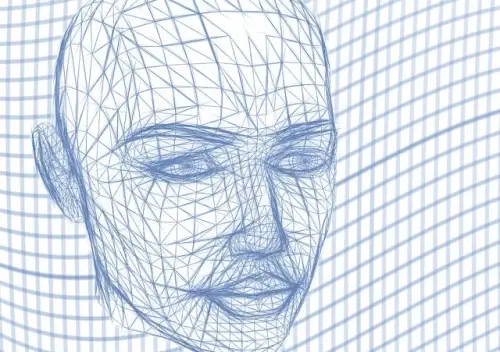
‘I am apprehensive in regards to the death of art:’ What’s going to generative AI rate us within the ruin?
How will generative AI transform the online gaming sector?
If you ask those in executive positions, they might claim it will initiate experiences your unstable human instincts could possibly not consider. New realms filled with untapped marvels. A second Eden. It may also reduce production expenses and save the gaming industry from imminent decline.
If you inquire among those in the production trenches, the answer is likely to be entirely different.
Sharing his insights on the increasingly controversial technology at GDC 2025, seasoned AI developer and former EA software engineer David ‘Rez’ Graham proposes that the most favorable outcome would allow generative AI to handle mundane tasks while humans focus on creative endeavors. What’s the worst-case scenario? Perhaps the demise of art.
After addressing the well-documented legal issues surrounding the training of modern generative AI tools like ChatGPT and Dall-E, and noting how in their current forms these technologies resemble a hammer looking for a nail, Graham poses a critical question: what is our purpose here?
He asserts that generative AI is not inherently evil—yet it can be utilized by companies with rather dubious intentions. A notable example: the tech startup Artisan, which advertised its AI tools in San Francisco with catchphrases such as “stop hiring humans” and “Artisans won’t complain about work-life balance.” Sarcastic? Possibly. In poor taste? Definitely.
Related:Unity prioritizing AI workflows, enhanced performance, and extended platform support in 2025
For Graham, it’s a marketing tactic that reveals the questionable motives of certain employers—including those within the gaming sector—and emphasizes the glaring gap between decision-makers and creatives striving to make their mark on the world.
“What does a writer actually do? Let me rephrase that. What value do they bring to the world?” asks Graham, trying to drive his point home. “I don’t think it’s just typing. That’s not where their value lies.” The answer, if it wasn’t clear, is that they tell stories.
“Do we really need more lack of innovation?”
Graham clarifies that the worth of artists is not solely about “smearing pixels on a screen,” but rather being visible experts. Programmers aren’t compensated just for writing code. “That’s the straightforward part,” he asserts. They’re rewarded for solving complex technical challenges that could otherwise derail projects. In essence: you hire individuals for their creativity. For their ability to challenge norms.
Where does AI fit into this equation? For Graham, it doesn’t.
“AI is purely derivative. By definition, it’s derivative. It’s trained on vast datasets. It derives answers from that data. It doesn’t create; it amalgamates. That’s its function,” he explains.
Related:Game workers in the U.S. and Canada launch industry-wide union to advocate for ‘dignity and respect’
“It identifies connections. This is incredibly beneficial. It’s a positive aspect—but it is not creative. That’s not what creativity entails. It won’t produce something like Into the Spider-Verse. That artistic style? It can’t achieve that unless it’s trained on that type of material. It simply won’t. We are already experiencing a lack of innovation in triple-A games. We all acknowledge it. We all see it. Do we genuinely need more stagnation?”
Graham reiterates that video games are an experiential art form, which is why he is troubled by how some within the industry are promoting generative AI.
“I’m not as concerned about job losses. I’m not particularly worried about people experimenting with [the technology]. I’m troubled by the potential death of art. That’s what worries me. That’s what I ponder when I’m trying to sleep and anxious thoughts invade,” he shares.
“I hope this is an exaggeration. I hope that in five years, people will be laughing at my concerns. […] I wish that to happen. But it’s undeniable that there is a trajectory that could lead to this—with everything resulting in a recycled, uninspiring product. The race to the cheapest show. To the least expensive game. Because those controlling the major companies are only focused on that,” he concludes.
Related:Roblox open sources 3D Cube model in first launch of genAI tools
Graham confidently theorizes that individuals don’t enter the gaming industry to create “a huge pile of mediocrity.” They aim to be artistic. They seek to push boundaries. Not merely recycle or beautify dialogue generated by ChatGPT “prompt-jockeys.”
“I don’t want to replace the creative spirit of the industry I cherish—and that has shaped my life—with soulless automation,” he adds.
Perhaps, he suggests, there would be more enthusiasm for generative AI as a means of alleviating monotony if the very companies promoting these tools hadn’t already harvested copious amounts of data without first asking for permission.
